On Icons, Idols, and Identity
A week of whiplash and a check-in on The Artist’s Way
Icons
I’m writing this while sitting here rewatching Blue Velvet, in honor of the late David Lynch. There’s not much I can say that you haven’t seen others say on social media. He was a true original. Too weird for some, maybe, but I think this sums things up nicely:
Then again, so does this:
The word I keep seeing thrown around about Lynch is “icon.” And it’s an appropriate one. There’s something instantly recognizable in his filmmaking — like watching a fever dream that stays with you long after waking.
Each year, I choose a set of words that I want to embody during the next 12 months. This is mostly aspirational and provides a sense of direction for what I want to be and create. One of my words this year is “iconic.”
I’d never say that I’m the most prolific artist or writer. But I am at a point where I’m starting to accumulate a body of work. And so this year I’m really investigating what it means to develop a unique voice and style, and how to make things that stand out.
Part of this assignment relies on studying the works of others. I’m also paying attention to who or what gets referred to as “iconic” and looking at what may or may not make that true. Art doesn’t exist in a vacuum, of course, so that also means examining my influences — and my influences’ influences.
Idols
The outpouring of love for David Lynch that I’ve seen, though tinged with grief, is a welcome sight after how the week began. If you haven’t seen or read the piece about Neil Gaiman in Vulture that came out on Monday, mind the warnings on it.
While it wasn’t news to me (the allegations first appeared on a podcast this summer), it did add more depth to an already horrifying story.
I admired Neil Gaiman’s work through the years. He was someone I found inspirational and whose advice on writing I’d found helpful. After the allegations came out this summer, I’ve been unable to engage with his work or support it. I believe the stories of the women who have come forward about his behavior. And I believe his behavior, as described in the podcast and the Vulture article, is inexcusable. (That goes for anyone who enabled that behavior, too.)
I think sometimes we can separate art from artist. This is one situation where I can’t. A few months ago, before the story broke, I might have called Gaiman an icon. I wouldn’t use that word today.
Identity
Last week, I talked about how I’m starting 2025 by rereading The Artist’s Way by Julia Cameron.
Week 2 of The Artist’s Way is about recovering a sense of identity and self-definition. This is something that’s evolved for me since the first time I read The Artist’s Way. I’ve changed what I call myself in name and as a creator.
“I believe that if it were left to artists to choose their own labels, most would choose none.” — Ben Shahn (quoted in The Artist’s Way)
Over the past week, I’ve also further interrogated my word choices for the year. What does it mean to be iconic? And how does that differ from being an idol? Where is the line between admiration and idolization — healthy respect vs. putting someone on a pedestal?
I don’t have the answers right now. But I think it has something to do with being mindful about where our attention goes. (And what/whom we focus on.)
My attention is, admittedly, scattered. I’m in the U.S. I think the coming week for us is going to be a tumultuous one, to put it very mildly. I’m nervous for what comes next.
But I know that art is what saves us. Art is vital in getting us through challenging times. We need artists now more than ever to remind us all of our shared humanity.
I don’t care if I never reach “icon” status. The real work is in creating — bringing our own version of weirdness into the world. (And, hopefully, being a good person while doing so.)
If David Lynch’s legacy proves anything, it’s that we owe each other that weirdness.



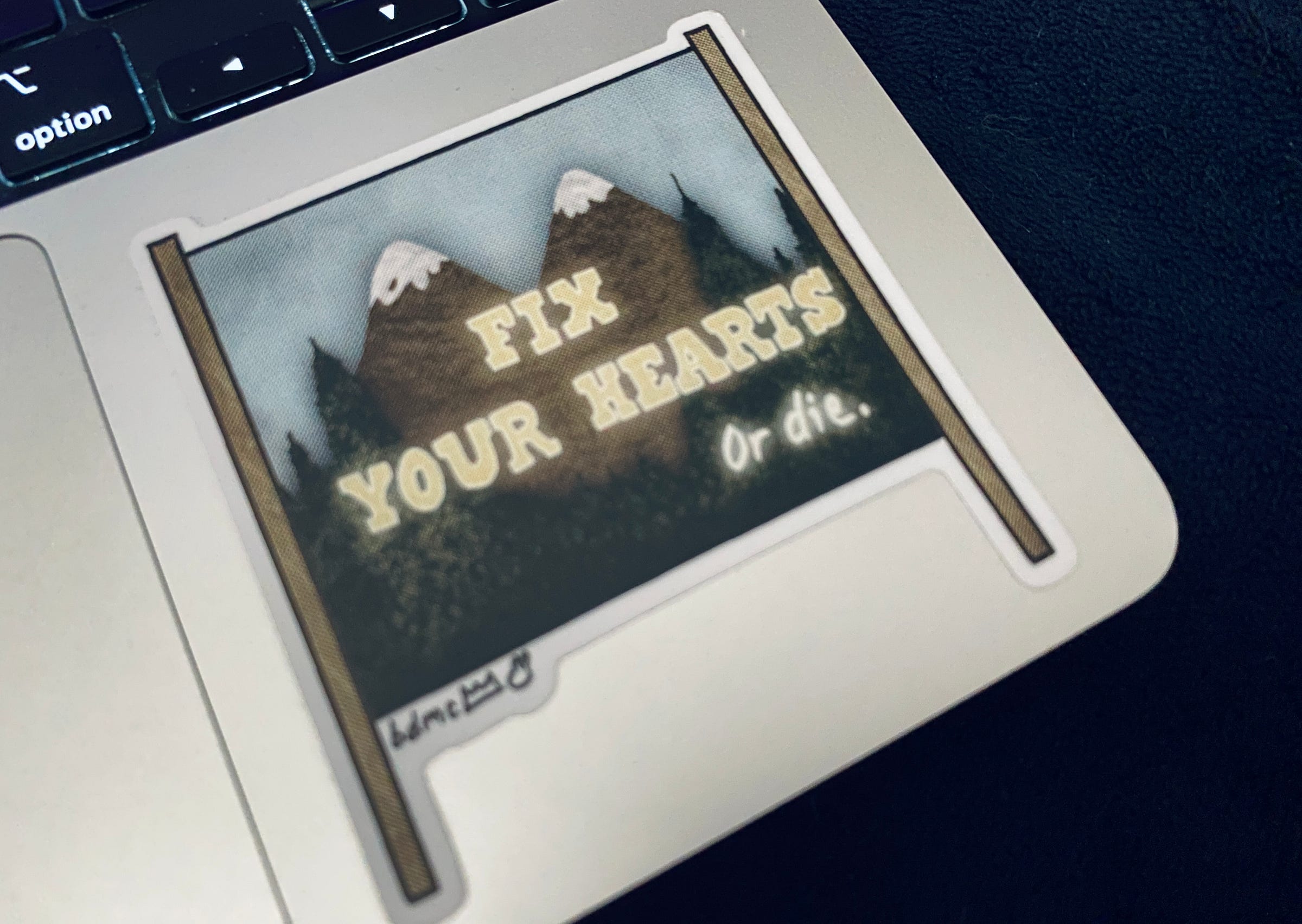
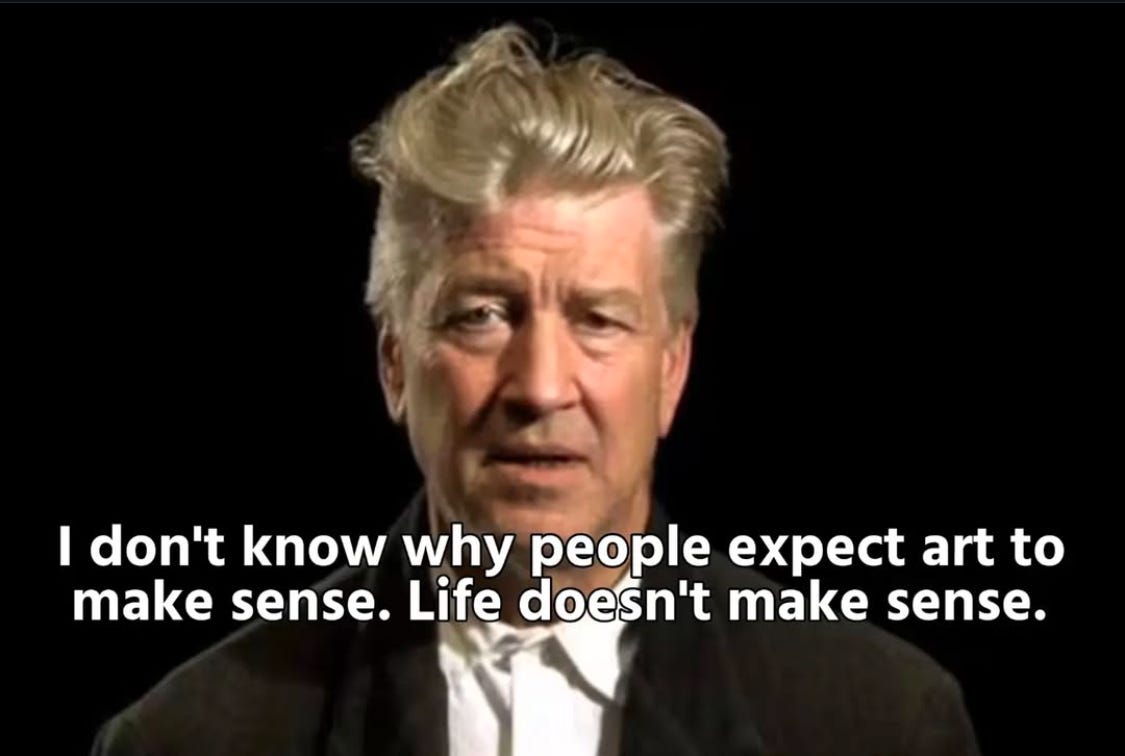
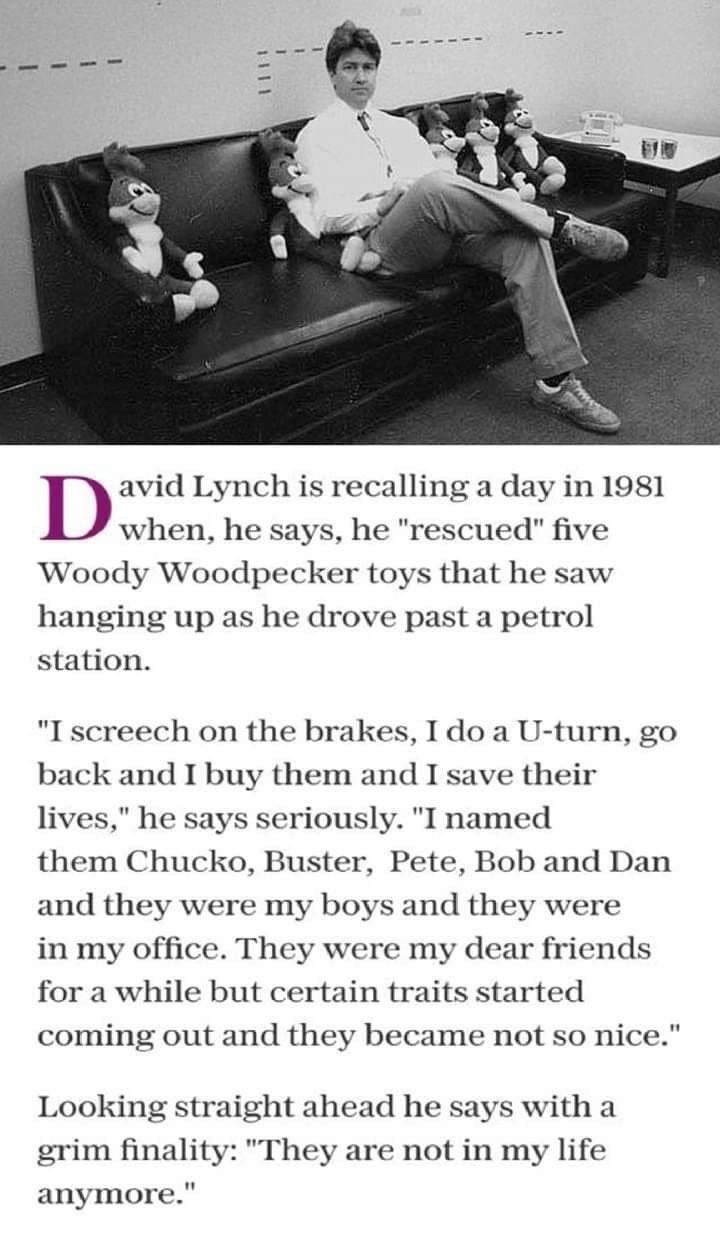
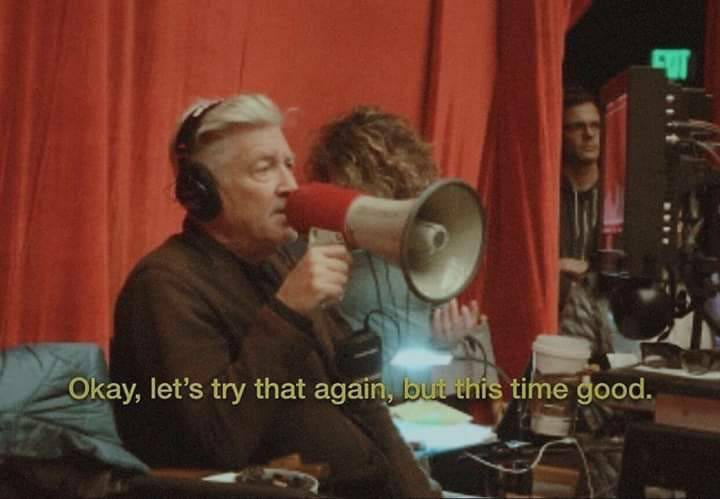
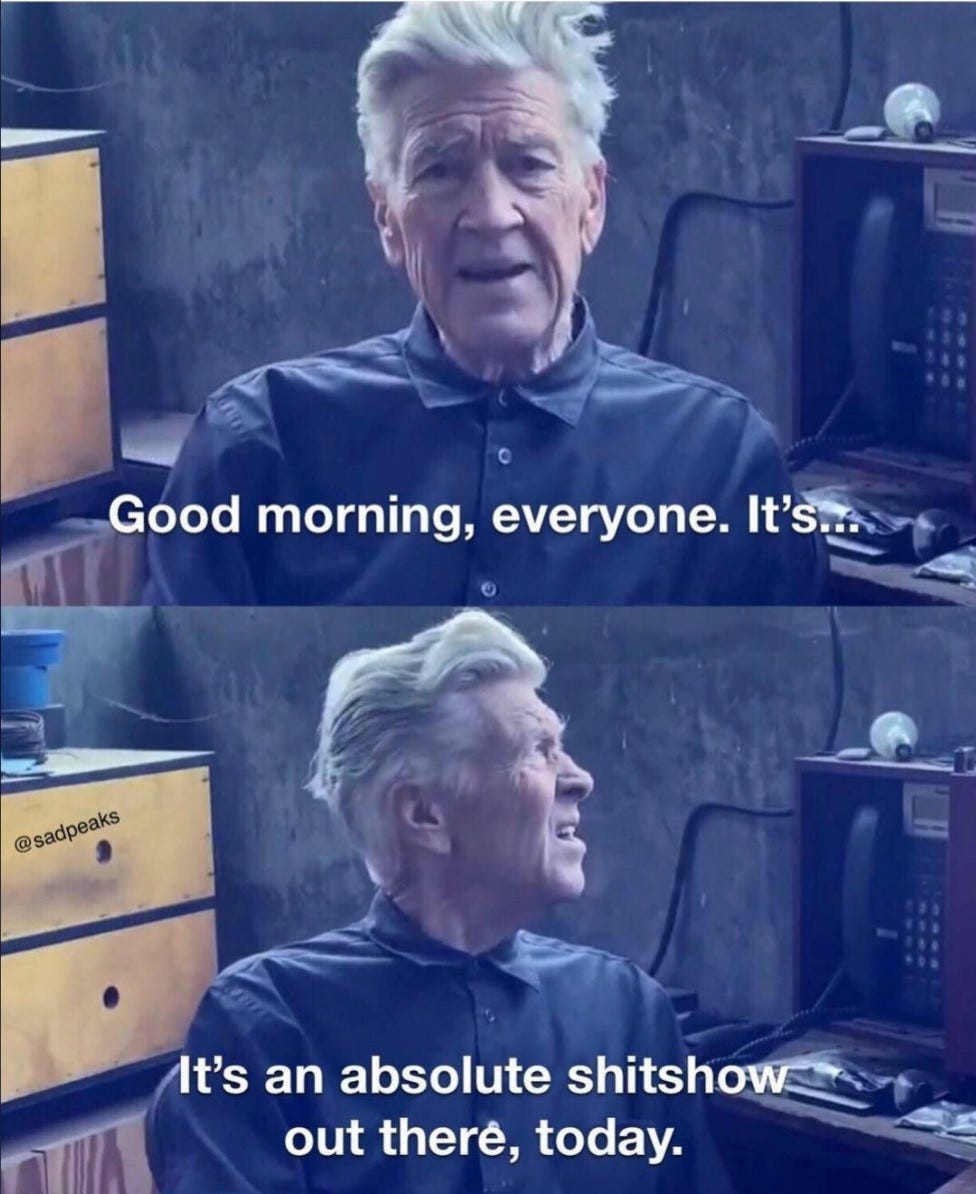
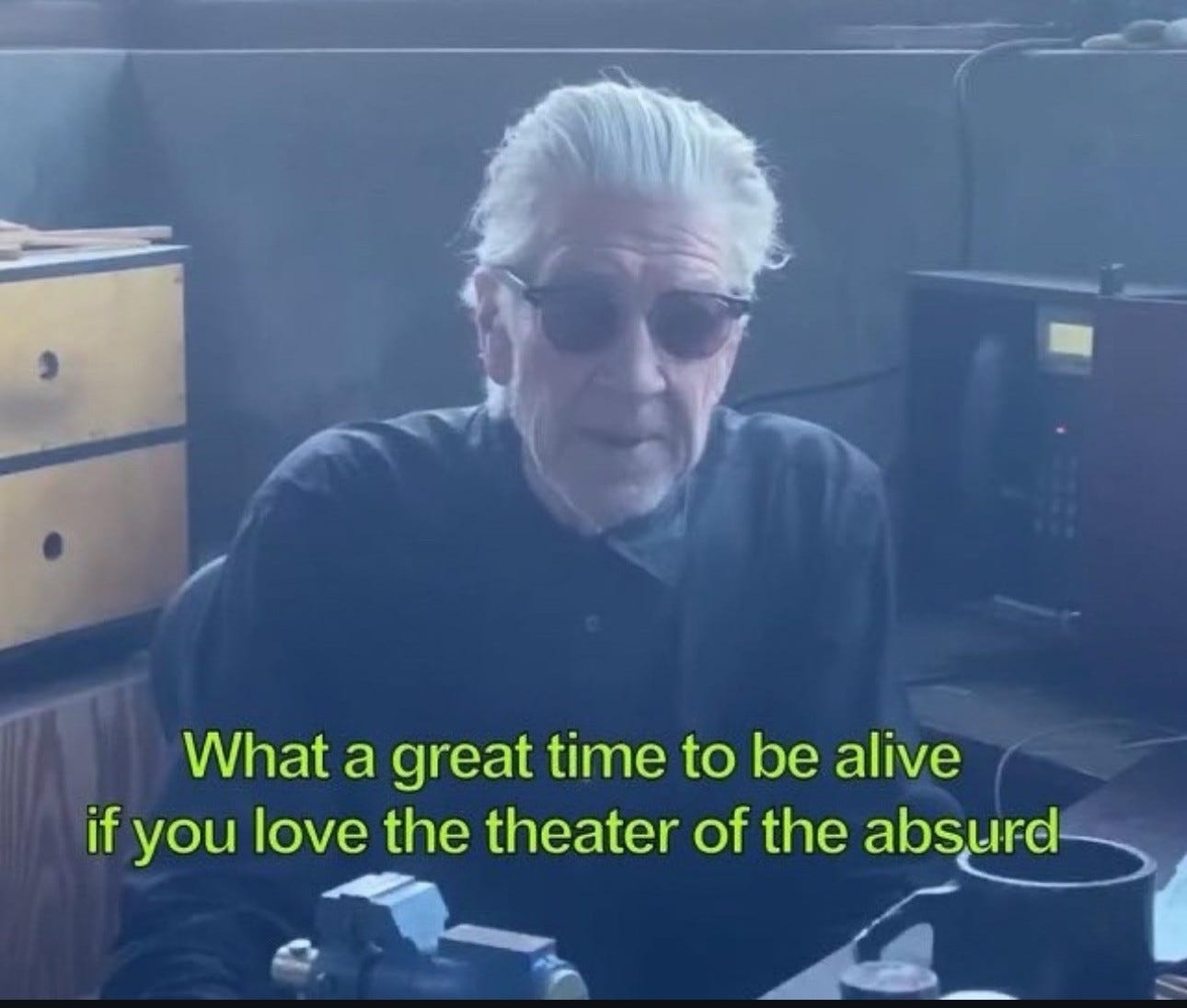
Beautiful work Dorian. Thank you. David Lynch changed many of our lives for the more beautiful, weird, scary and strange. I still recall having to get out of my seat and go to the lobby during Blue Velvet to get away from what felt like a shocking storm of contrasting messages that seemed to tip my expectations and values on a dangerous edge. And also Twin Peaks was the greatest television show of all time and changed so many people in my age group as we finally saw something on tv that felt completely amazingly us. I have been feeling for a while the desire to connect with the absurd or silly or nonsense in my life...the nonsense in the world is 'real', but in this moment I don't exist entirely in this world rather within it but also entirely separate and that in-between feels like it should be full of silliness and absurdity a bit more than this mediated reflection of 'reality' we are subject to if we happen to be using the internet or watching news with any degree of reality. It's a noisy world out there and David Lynch was someone who had a way with silence and it's in the silences that I think real imagination lives and I know he knew that, most likely being a lover of old silent films I suspect as well right?